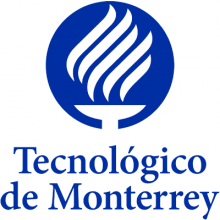On paper, Mexico and Singapore may seem worlds apart, but they share a need to evolve their education systems to be much more flexible and responsive to changing societies, according to lifelong learning expert Michael Fung.
After a career mostly focused on Asia – including a stint designing the highly regarded SkillsFuture programme in Singapore – Dr Fung moved to Latin America last year to head the Institute for the Future of Education at Monterrey Institute of Technology, tasked with finding ways to ensure universities can serve the needs of the country’s rapidly expanding economy and reach left-behind communities.
Singapore is one of the few countries in the world generally considered to be getting lifelong learning right. Since 2014, SkillsFuture – for which Dr Fung was deputy chief executive and led on the work aligning institutional offerings with the skills industries are forecast to need in future – has given every citizen aged 25 or older S$500 (£310) of credit that they can spend on further education or training.
He took the methodology he developed to other countries in Asia, including the Philippines and Indonesia, but said improvements were always incremental because they were “building from a high level”, and felt there was an opportunity to have a greater impact elsewhere, which is what brought him to Mexico.
Dr Fung’s arrival has coincided with a “nearshoring” boom that has seen companies such as Tesla shift production to Mexico, creating jobs and investment in areas such a Nuevo Leon, the state where Tec – which has itself switched to a competency-based curriculum aimed at preparing students for their careers – is headquartered.
“The kind of skills needs in industry and society [are] shifting rapidly,” said Dr Fung. “This applies not just in Singapore and Asia, but also in Mexico, the US, everywhere in the world.
“The need for lifelong learning and the challenges this presents for higher education are very similar but different countries are adopting different approaches. For years now, a lot of the lifelong learning [and] workforce development efforts have been left to a state level or a company, very decentralised. But now we are starting to see more and more country-wide initiatives.”
Dr Fung said that policymakers were steadily becoming more aware that “if they don’t move quickly and at scale the competitiveness of industries is going to be affected and the long-term economic growth possibilities are going to be challenging, even in a place like the US, for example”.
Education, he argued, has to be more responsive to the needs of industry and society. If it doesn’t, then he fears the gap between the aspirations of students and parents and what higher education is offering will grow, with repercussions such as the declining enrolment rate that the US is currently seeing worsening.
“This speaks to the point that if education is becoming less relevant to the needs of society, we will soon become irrelevant to our communities,” he said.
While the rapidly changing needs of industry are one differential from the more developed economy of Singapore, Mexico’s large number of underserved communities, particularly its indigenous populations, is another challenge Dr Fung has not previously encountered.
Most institutions in the country are already increasing their indigenous access efforts, and for Dr Fung this is another key goal for what lifelong learning can achieve.
“Lifelong learning here is about understanding the context of where these populations are and building a system that is relevant and fit for that context,” said Dr Fung.
Tec operates a network of 26 campuses across Mexico and, like most universities, is also expanding its digital education offering, but still faces a challenge in reaching these audiences, he added.
“One would think that you could use technology to scale. That’s a good approach but in many of these communities there is no access to internet or smart devices,” he said.
“Our approach is to have digital content preloaded on to smart devices made available to community elders or champions who then facilitate the learning in the communities. The beneficiaries, even if they have no access to internet or smart devices, are therefore able to access it. This is how we can do what we do at scale and work with much larger communities.”
Unlike SkillsFuture, the institute at Tec is not a government body and can therefore only advise on and research the best ways of implementing lifelong learning in Mexico, while the government run by Andrés Manuel López Obrador – which has a strained relationship with private universities – is yet to get fully behind the initiative.
But Dr Fung – one of several international academics tempted to Mexico as a result of Tec’s investment in research – said the university will continue to push radical innovations in education in the hope of showing the country – and the wider world – what’s possible.
Register to continue
Why register?
- Registration is free and only takes a moment
- Once registered, you can read 3 articles a month
- Sign up for our newsletter
Subscribe
Or subscribe for unlimited access to:
- Unlimited access to news, views, insights & reviews
- Digital editions
- Digital access to THE’s university and college rankings analysis
Already registered or a current subscriber? Login










